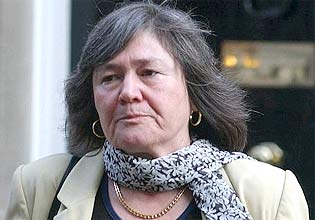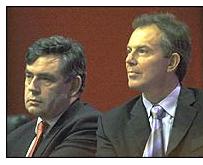 Iain Dale has published his long awaited booklet listing the Top 100 Political Blogs. He's ranked me at No 10 so, before I say anything else, thanks Iain for the accolade. At the start of this year, when my blog had only a few hundred visitors a month, I'd have more than settled for a Top Ten placing. And to finish one ahead of Boris Johnson and two ahead of Adam Boulton was particularly satisfying!
Iain Dale has published his long awaited booklet listing the Top 100 Political Blogs. He's ranked me at No 10 so, before I say anything else, thanks Iain for the accolade. At the start of this year, when my blog had only a few hundred visitors a month, I'd have more than settled for a Top Ten placing. And to finish one ahead of Boris Johnson and two ahead of Adam Boulton was particularly satisfying!Dale describes me as a "Regional Lobby Journalist based in Derbyshire whose writing is like fine wine." Tim Worstall has had a bit of fun at my expense with the "fine wine" bit, but I don't mind that. What I do mind (though only slightly) is being called a regional lobby journalist. I am, of course, ex-lobby.
Anyway, it's a truly Stakhanovite effort from the great man. He not only lists the Top 100 blogs overall, but the Top 100 in the Conservative, Labour, Liberal Democrat and non-aligned categories. I am fourth in the non-aligned group behind Guido, Political Betting, and Dr Crippen, aka the NHS Blog Doctor. Can't complain about any of that.
To my mind, however, Iain's complex ranking system has thrown up one or two rather glaring anomalies in the list which I feel it is my duty to point out.
First, he rates the new Lib Dem version of Conservative Home, Liberal Democrat Voice at No 4 in the list, despite the fact that it has only been existence for about a fortnight. Meanwhile Political Betting is placed no higher than No 6.
This is simply silly. PB.com is a Top Four blog by anyone's standards and as high an authority as Guido - who doesn't dish out the compliments readily - once described Mike Smithson as having "more insight than the whole of the Lobby put together."
The most glaring omission however is Labour Watch, which makes only No 89 in the non-aligned list. This is very unfair on Lib Dem blogger Inamicus who, in compiling tales of Labour misdeeds from local and regional papers around the country, is doing something no other blog is currently doing.
Finally, Dale is way too modest about his own standing in the blogosphere. He rates his blog as the 3rd best overall and the 2nd best Tory blog, but most people would rate it No 1 in both categories.
Guido is frequently more amusing and his stories more politically damaging, Conservative Home is more comprehensive in its breadth of coverage of Tory politics, and PB.com generates easily the best online debates, but none is consistently as good as Dale's Diary.
Apparently his career is about to go in a new direction. I wonder what we are going to do without him?











